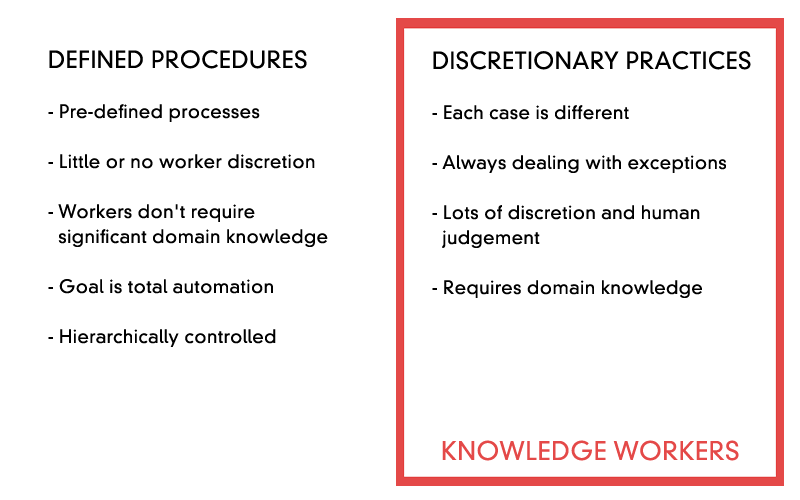Adaptive Case Management: Empowering Knowledge Workers
In the final part of our Adaptive Case Management series, we ask Paul McGlynn to explain how Knowledge Workers will benefit from ACM.
How does automation empower modern knowledge workers?
Another way case management differs from traditional BPM systems is in the way it views the knowledge worker and the system as a single system. The modern knowledge worker is tech-savvy, understands business information, has strong analysis skills, and knows the detail behind their organisation’s business processes.
“So they don’t need a rigid, proscriptive system which treats them as a passenger. They need tools to drive the process, driving outcomes based on decisions they might make outside the system.”

That’s not to say Adaptive Case Management (ACM) doesn’t drive efficiency gains from automation. ACM looks to strike the balance between automating repeatable, commodity processes, , and those activities that will benefit from human intervention, and usually differentiate the organisation in its marketplace.
And this is important, because one of the biggest causes of failure in enterprise process automation, is when organisations try to automate every possible customer scenario and activity inside their operations.
Nathaniel Palmer, in 2011 said that “Much of the knowledge worker’s daily activities cannot be accurately defined in advance, at least not with the precision necessary to code into IT applications, and therefore most often take place outside the realm of ERP and BPM.” This is an ideology we firmly believe in at Caseblocks – and it exemplifies why automation cannot replace the knowledge worker. They are adaptive and flexible, an advantage which ACM has over traditional ‘process-flow’ approaches.
In a future post we’ll talk about how AI and ACM come together to give the perfect blend of human and artificial intelligence for enterprise process automation.








